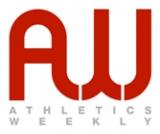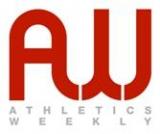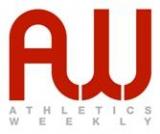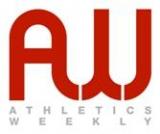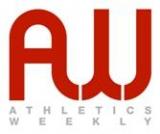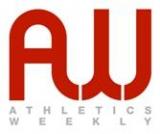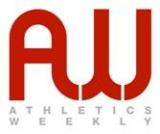Folders |
How they train Tom BosworthPublished by
With a 10km walking PB faster than many club runners, Tom Bosworth is on the rise, as AW found outThis year has started the way that 2014 ended for Tom Bosworth with the highlight being a British 10km record of 39:36 at the Molly Barnet Open on March 1. The previous record had stood for 26 years and the new record-holder said: I am honoured to move the event on and I want to keep making these records faster, so the current crop of young race walkers will have to aim high to become the British No.1. I m planning to continue to push race walking back into the mainstream of athletics once again.” Following that performance, he recorded his second fastest 20km time ever in Lugano on March 15 after slipping off the British record pace with 4km remaining after struggling with a bad stomach. It was only three seconds shy of his PB and 20 seconds behind Ian McCombie s British all-time best set at the Seoul Olympics in 1988. Just over a month later and he was back racing over 20km, this time winning his fourth British title over the distance, clocking 1:29:16 in Hillingdon. The Tonbridge walker said: I am happy to walk 1:22:33 when not at 100%. I finished fourth which is my highest placing in a race walking challenge race. I was in second until 16km but still managed hold on for a decent placing. It s my fourth qualifying time for this summer s World Championships in Beijing.” The 25-year-old first got into athletics at the age of 11 when he joined his sister at Tonbridge AC. He says: My sister race walked, but I decided to join a running group instead. A year later I joined her and started race walking in the winter of 2002 to see if I liked it and joined Pete Selby s race walking squad.” Bosworth also did a lot of trampolining, training two or three days a week as he got older and only went race walking once a week, with athletics being more for fun, and never serious. When he reached his later teenage years he started running more and between the age of 1719 was doing two to three runs a week and race walking twice. When he was at sixth form in Tunbridge Wells, his dad wanted him to get a job, but as Bosworth explains: I asked him for some more time to see if I could get the junior time for the GB team for the European Race Walking Cup in 2009. My race walking times had been getting much faster since I was training more and I achieved the time and made my GB debut in May 2009. In September 2009 I was invited to the newly opened National Race Walking Centre at Leeds Beckett University (formerly Leeds Met).” After seven years of being coached by Selby, the merge began to training full-time at the race walking centre under director of the centre, Dr Andrew Drake. He went on to study BSc sports performance and graduated in 2012 and then went on to study a post-grad course in sport exercise nutrition and graduated in 2014. Additionally, he also became a qualified sports masseur in 2013. Bosworth admits he loves race walking because of the history of the event and adds: It is such a brutal event and so challenging technically and physically. People often confuse the event as just walking at a pedestrian pace, so when we go out training or race walk in running races, people are stunned when we race walk past the runners. As people understand more about the event the respect we get is great and that is why I love doing the event I m not just another runner, I m the race walker who can walk faster than a lot of people can run. A strong mentality is something I pride myself in.” Looking back, Bosworth thinks that his breakthrough came courtesy of an EAA permit race over 20km in Podebrady, Czech Republic, last year. He says: I finished 10th in a PB 1hr 22min 20sec the third fastest ever for a British walker and this gave me the qualifying time for the Europeans. That was a true step forward and I backed it up with a big performance at the World Cup where I became the first British man to go under 1hr 23min twice in one season.” Bosworth has recently been appointed as an Ambassador for Athlete Ally a non-profit organisation inspiring athletes to act as leaders championing lesbian, gay, bisexual and transgender (LGBT) equality. He says: In life I ve learnt you can either sit by and watch others try to make a difference, or you can stand alongside those and make a difference with them, for you are always stronger together. That s why I am so honoured to be an Athlete Ally Ambassador.” On pre-race and post-race foodIn the days before a race I try and keep my diet very similar to what I would usually eat aiming for a total intake of about 3500 calories,” says Bosworth. You can t go wrong with a balanced diet, so I stick with rice or pastabased meals with some meat or fish and a nice helping of vegetables. I never eat anything I haven t before but this isn t always easy when in a different country with new foods and different cultures I always take back-up food including porridge and cereal bars. On the day of an actual race, I have breakfast, which is always a basic carbohydrate meal, two hours before start time. It s never much though, as long as I ve eaten well the night before.” On his favourite and least favourite sessionsPeople might think I m crazy, but before the World Race Walking Cup and European Championships last year we did a lot of long tempo sessions,” Bosworth remembers. Basically, these were between 15 and 20km and they made a big difference to me. As an example, the session would be 5x3km at a strong pace with an easier kilometre in between each 3km rep. The session could be changed slightly by either doing 2km, 3km or 4km reps – separated by a 1km. They are tough because of the speed being closer to race pace once completed you feel great! My least favourite sessions are always the cold, long steady walks these are aimed at consistent walking at just under 5min/km pace. These range between 20-30km and are tough when you have the Yorkshire wind and rain in your face and all you want to do is go home, eat and sleep!” On musicBecause of the technical side of walking, maintaining focus in sessions is essential and so I never listen to music. Concentrating on technique and maintaining pace are hard enough I wouldn t even notice the music if it was there I barely even notice my coach! Before a race though, I always listen to music, quite motivational stuff, but not always.” On his training groupTraining at the race walking centre at Leeds Becketts University has allowed me full access to all the training facilities when I was there for the previous five years as a scholar including the track and gym. Being based in Leeds means I can visit the brilliant physio team at the Coach House Physiotherapy Clinic in Headingley. I also work with a sports psychologist, who basically just listens to me moaning about training and how tired I am all the time. The 17 Management team look after everything else for me so that I can focus on training and racing.” On his goalsThis year the main goal is to be at the competitive end of the 20km race at the World Championships in Beijing,” Bosworth says. For me, this would mean backing up last year s 12th place at the European s with a top 20 placing in China. I also hope to improve the 10km British record again as well as getting the 20km mark. There are a few opportunities over 20k right now and I feel relatively confident in my form to get that record which is currently only 17 seconds faster than my current PB. Ultimately, I want a medal at the 2017 World Championships in London after a top 10 finish in the Rio Olympics next year, with further medals post 2017 at Commonwealth, Worlds and Olympics.” TYPICAL TRAINING OUTLINEMonday: (am) 10km steady pace in approx 49min. (pm) 5km steady pace (25min) followed by circuit training. The circuit itself lasts 1 hour, with a physiotherapist-led 45min warm-up including core and balance work and basic Pilates exercises. Tuesday: (am) 14km steady pace in approx 1hr 8min. (pm) Track: tempo/speed session such as: 3x1km with each rep in 3:55-4:10 (200m walk rec between each 1km); 3km in 12:15-13:00 (600m walk rec); 3x1km in 3:55-4:10 (200m walk rec between each 1km). Wednesday: (am) 1 hour gym session which includes: lunges, squats and lower leg work followed by 8km steady walk in 40min. (pm) Easy 8km run in 35min. Thursday: (am) Long walk 20-25km in approx 2hr (25km). (pm) Race walk drills and exercises and a steady 5km in 25min. Friday: (am) 10km steady walk in approx 50min. Followed by 1hr gym. (pm) Rest. Saturday: (am) Long steady walk (25km in 2hr). (pm) Rest. Sunday: Rest Day or an easy 8km run. The above sessions are specific to the individual athlete and may not be suitable for other athletes See tombosworth.com The post How they train – Tom Bosworth appeared first on Athletics Weekly. Read the full article at: www.athleticsweekly.com
More news |
